Advertising
Currier and Ives Toiletries
Many cultural touchstones of my youth have vanished, and mean nothing now to new generations."Currier and Ives" is one such.
At one time this name meant "nostalgic popular culture invocations of the nineteenth century." But given that meaning, what kind of smells would you necessarily associate with it? Horse manure? Coal fires? Unwashed longjohns? Was that what was meant by "manly elegance?
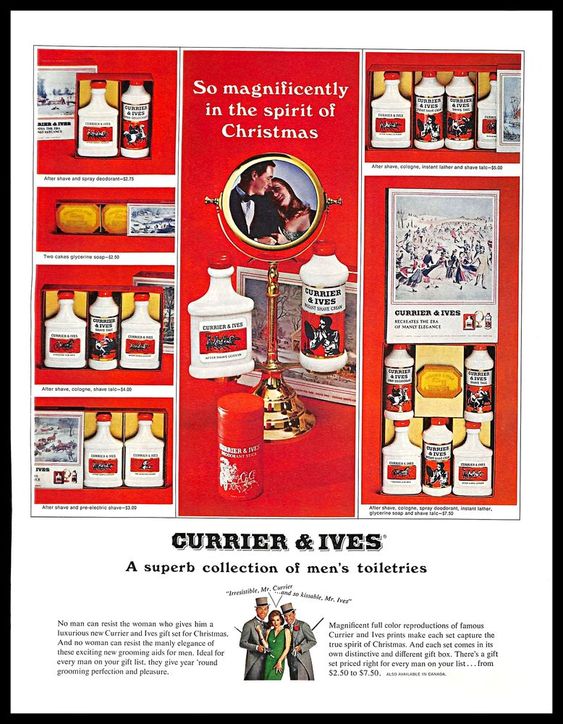
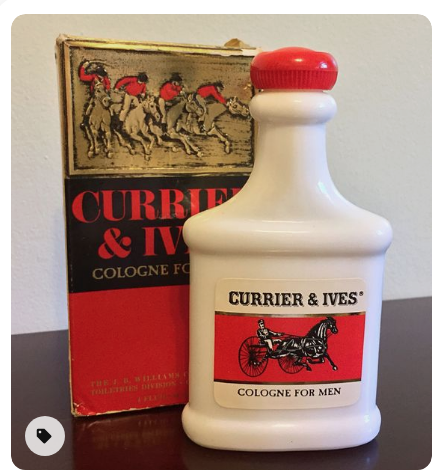
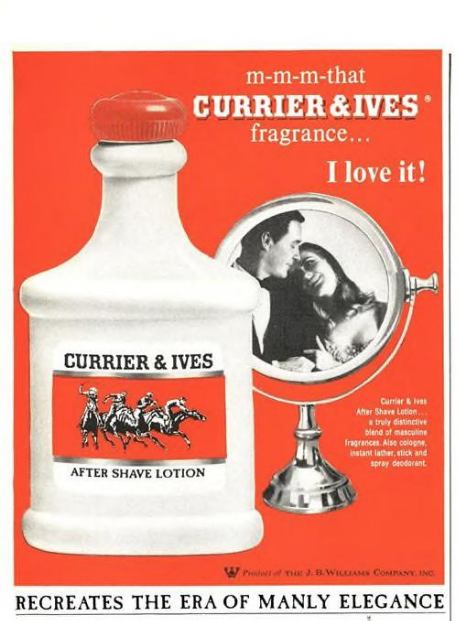
Posted By: Paul - Thu Jul 29, 2021 -
Comments (1)
Category: Advertising, 1960s, Perfume and Cologne and Other Scents, Nostalgia
Presenting the Losers
A 1967 ad campaign for Eastern Airlines.Of course, I'm pretty sure all the women in the ad were actually models/actresses. So in their true profession they were winners of a spot in the campaign. Most notably, that's Ali MacGraw sitting in the front row.

Time - Sep 29, 1967
Some analysis by Kathleen Barry in Femininity in Flight: A History of Flight Attendants —
Posted By: Alex - Mon Jul 26, 2021 -
Comments (5)
Category: Advertising, Air Travel and Airlines, 1960s
Lucky Strikes as Weight-Loss Aid
See more in this series at the link.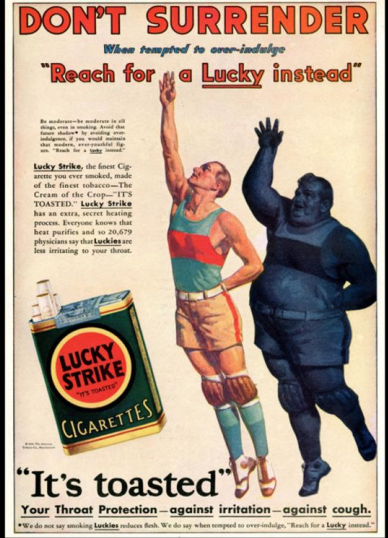
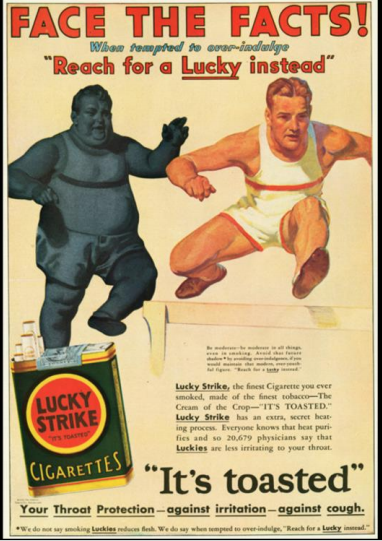
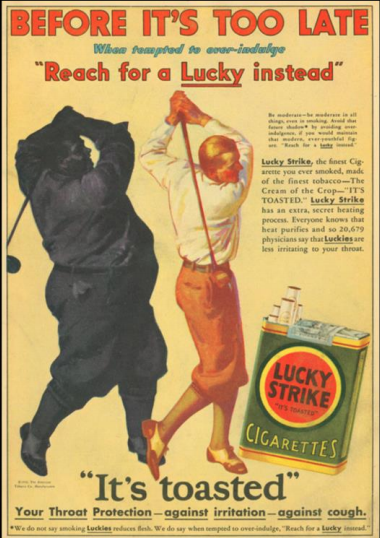
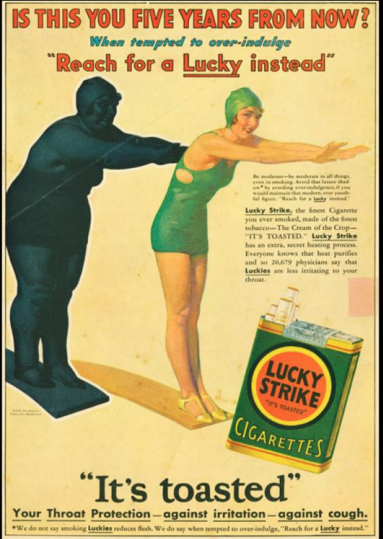
Posted By: Paul - Mon Jul 26, 2021 -
Comments (1)
Category: Advertising, Smoking and Tobacco, Twentieth Century, Dieting and Weight Loss
Follies of the Madmen #512
We all know of course that "BO" was a frequently used advertising term for body odor. But I never saw another ad that tried to push "BO-BO" as an insult.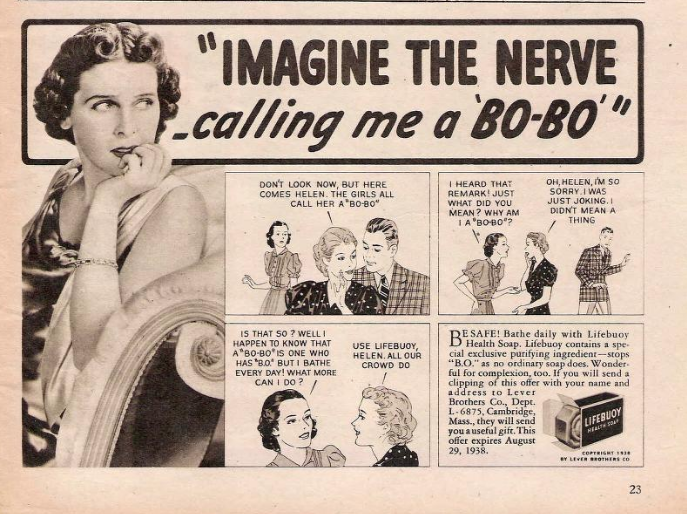
Ad source.
Posted By: Paul - Sun Jul 25, 2021 -
Comments (1)
Category: Hygiene, Advertising, Women
Giant Cat Billboard
Other videos and article here.
Posted By: Paul - Mon Jul 12, 2021 -
Comments (0)
Category: Animals, Excess, Overkill, Hyperbole and Too Much Is Not Enough, Technology, Advertising, Giant People in Ads, Asia
Doll-to-Doll Carpeting, and other Mr Leggs Ads
These Mr. Leggs ads offer a window onto the twisted male psyche of the 1960s. They ran in newspapers and magazines (Esquire) from 1963 to 1965.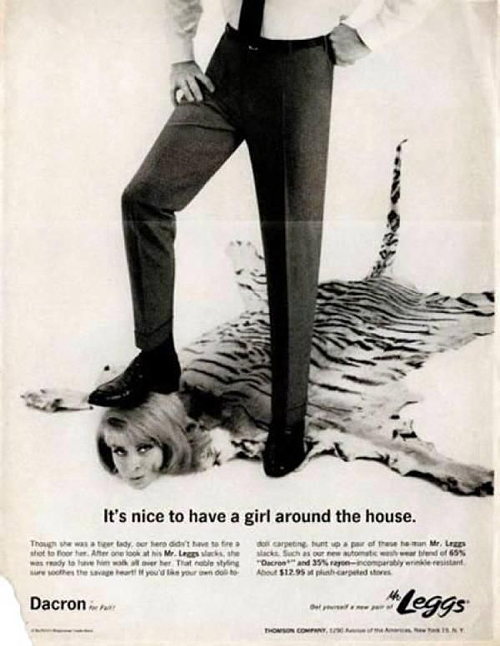
"Though she was a tiger lady, our hero didn’t have to fire a shot to floor her. After one look at his Mr. Leggs slacks, she was ready to have him walk all over her. That noble styling sure soothes the savage heart! If you’d like your own doll-to-doll carpeting, hunt up a pair of these he-man Mr. Leggs slacks."
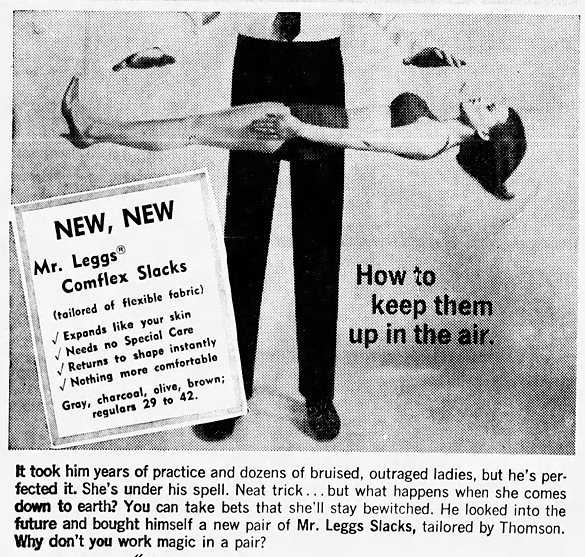
"It took him years of practice and dozens of bruised, outraged ladies, but he's perfected it. She's under his spell."
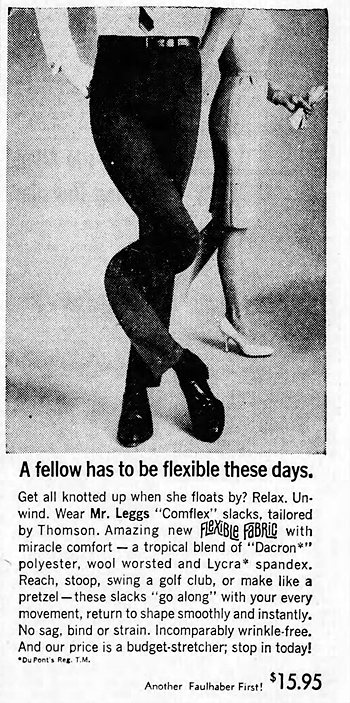
"Get all knotted up when she floats by? Relax."
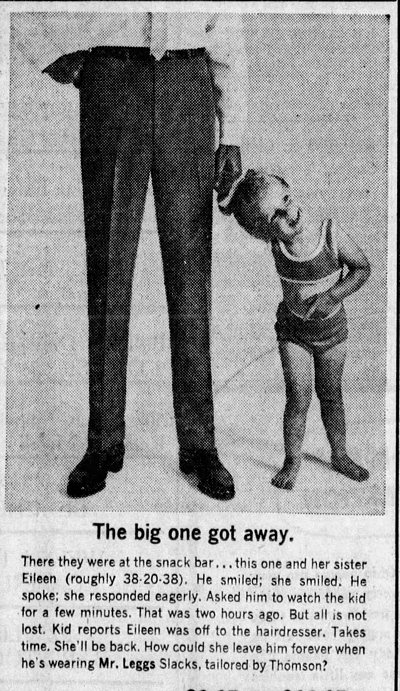
"There they were at the snack bar... this one and her sister Eileen (roughly 38-20-38). He smiles; she smiles. He spoke; she responded eagerly. Asked him to watch the kid for a few minutes. That was two hours ago."
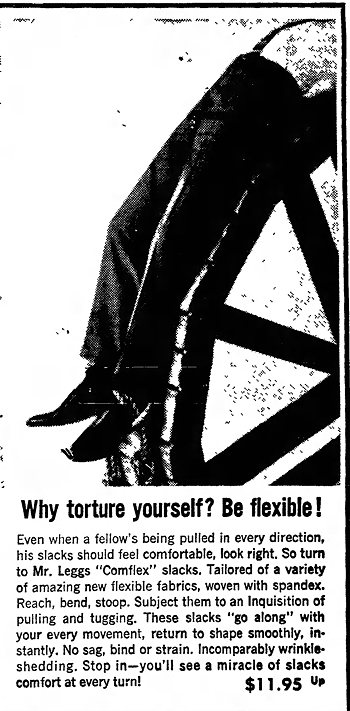
"Why torture yourself? Be flexible!"
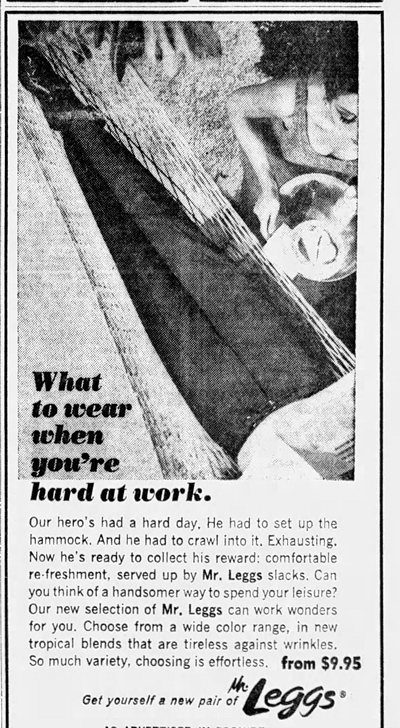
"Our hero's had a hard day. He had to set up the hammock. And he had to crawl into it. Exhausting. Now he's ready to collect his reward."
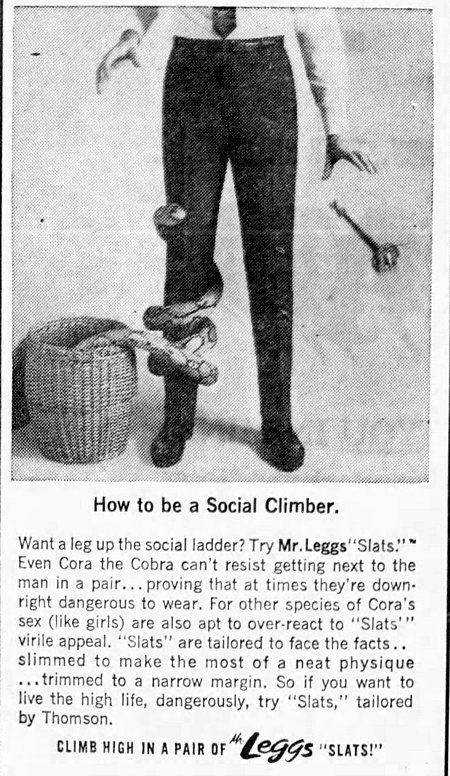
"Even Cora the Cobra can't resist getting next to the man in a pair... proving that at times they're downright dangerous to wear. For other species of Cora's sex (like girls) are also apt to over-react to Slats' virile appeal."
Posted By: Alex - Sat Jul 10, 2021 -
Comments (3)
Category: Advertising, Gender, Men, 1960s
Follies of the Madmen #511
Entice customers by showing something disgusting.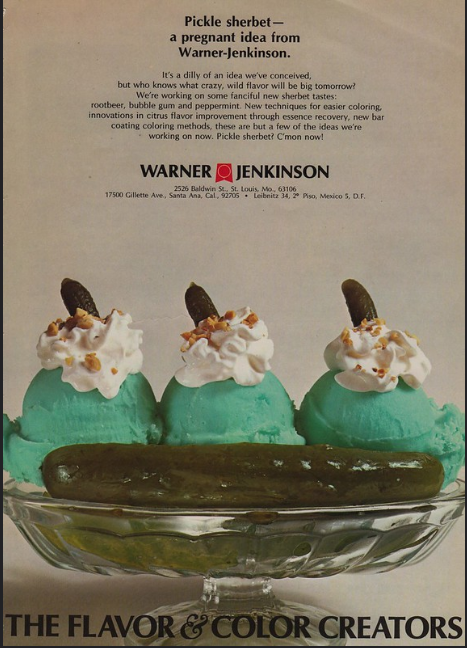
Source.
Posted By: Paul - Sat Jul 03, 2021 -
Comments (3)
Category: Business, Advertising, Food, Twentieth Century, Nausea, Revulsion and Disgust
Dirty Toilets Prompt Relocation
This is like the old joke about selling your car when the ashtrays get full.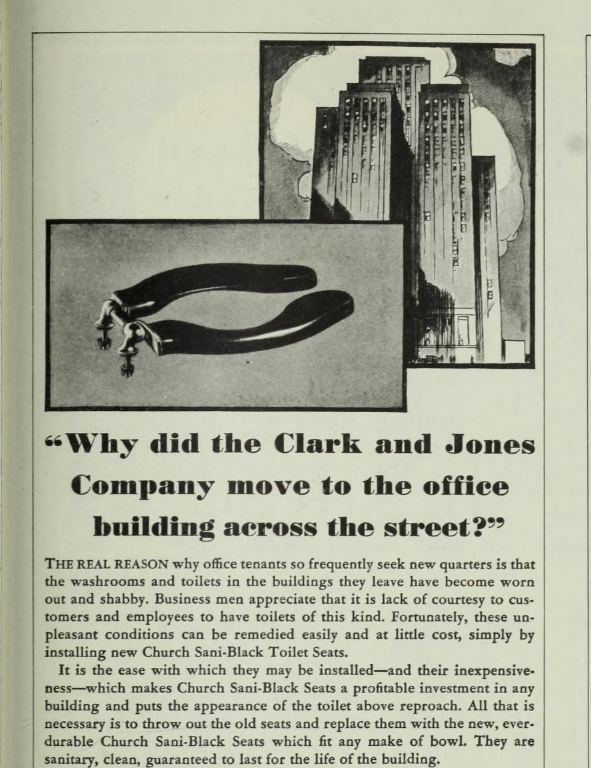
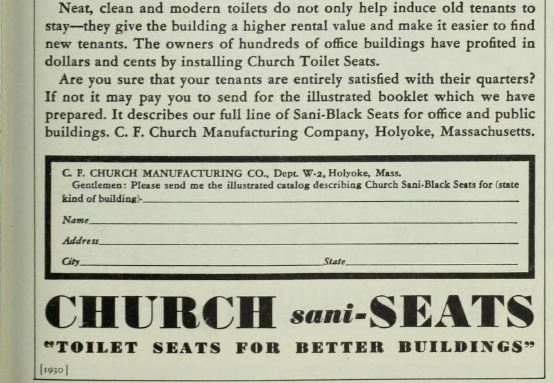
Posted By: Paul - Sun Jun 27, 2021 -
Comments (0)
Category: Architecture, Business, Advertising, Hygiene, Twentieth Century
Follies of the Madmen #510
What's the point of using even a drawing of a pretty woman in your ad if you hide her face?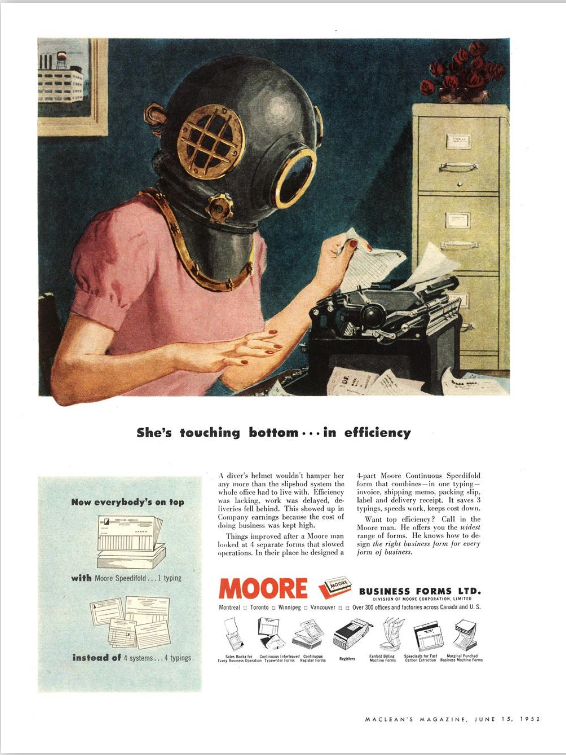
Source.
Posted By: Paul - Fri Jun 25, 2021 -
Comments (3)
Category: Business, Advertising, Sex Symbols, 1950s
Follies of the Madmen #509
Was this ever such a drastic problem, or one of those made-up Madison Avenue problems?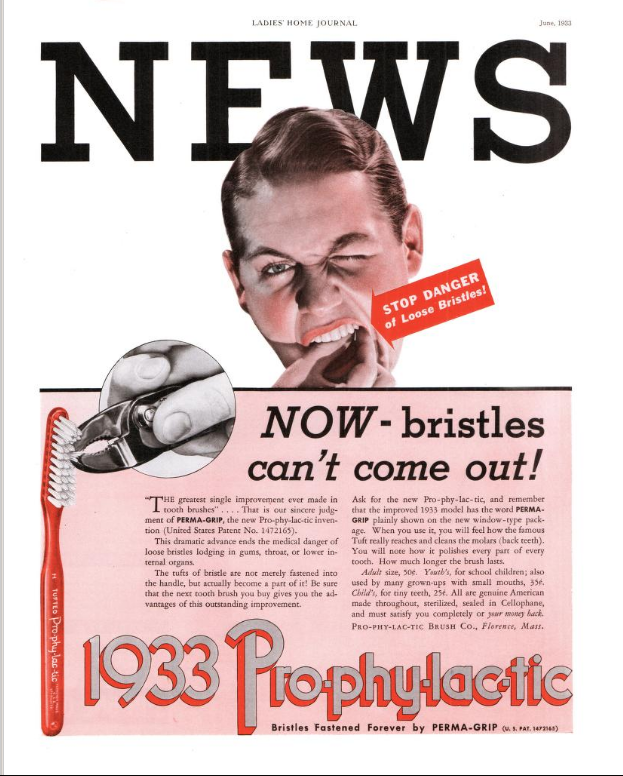
Posted By: Paul - Tue Jun 15, 2021 -
Comments (4)
Category: Business, Advertising, Hygiene, 1930s, Teeth

| Who We Are |
|---|
| Alex Boese Alex is the creator and curator of the Museum of Hoaxes. He's also the author of various weird, non-fiction, science-themed books such as Elephants on Acid and Psychedelic Apes. Paul Di Filippo Paul has been paid to put weird ideas into fictional form for over thirty years, in his career as a noted science fiction writer. He has recently begun blogging on many curious topics with three fellow writers at The Inferior 4+1. Contact Us |




